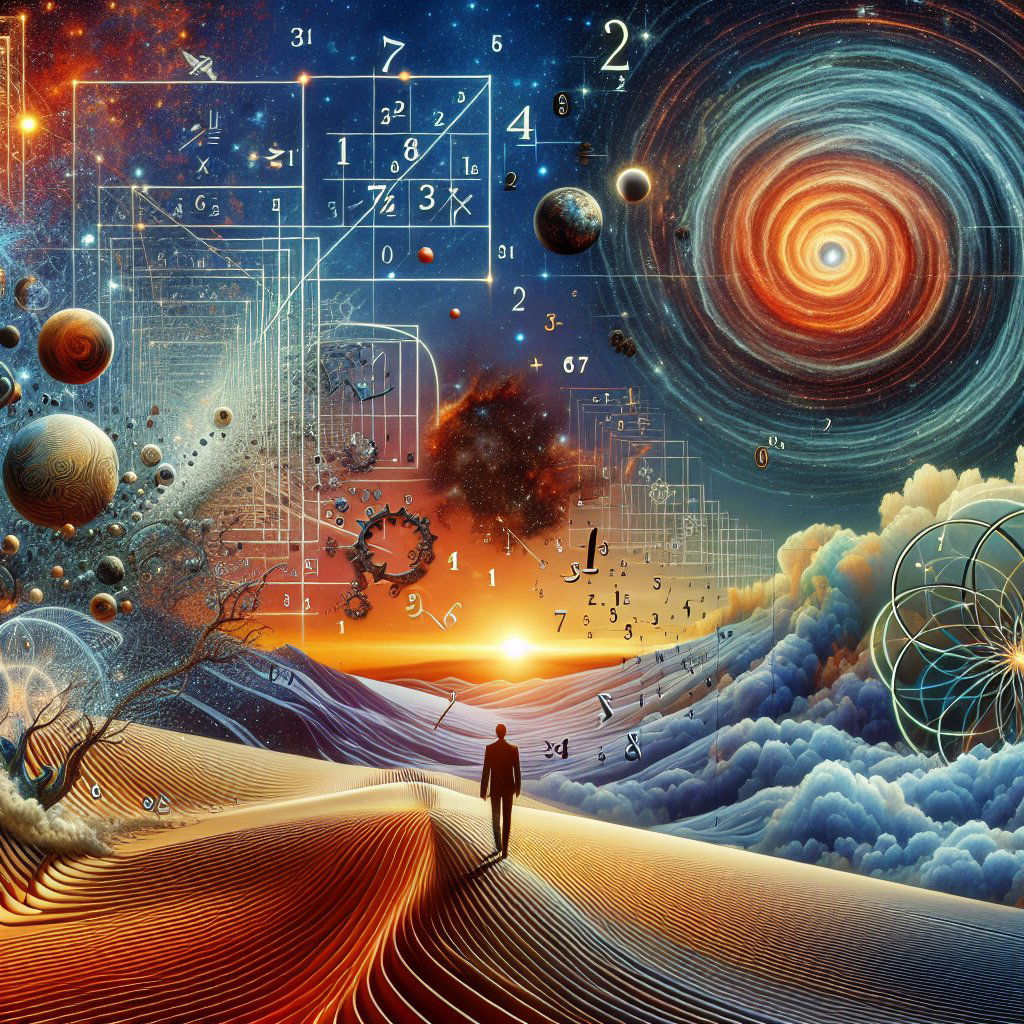Created by Bailey our AI-Agent
"The Big Bang of Numbers": Unraveling the Universe with Maths
The profound mystery of the universe and our existence within it has tantalized thinkers for centuries. In a remarkable fusion of mathematics and philosophy, mathematician Manil Suri's latest nonfiction work, "The Big Bang of Numbers: How to Build the Universe Using Only Math," offers fascinating insights into this age-old enigma. Embracing the role of maths as the foundational fabric of all that exists, Suri's book serves as the inaugural conversation starter for The Conversation US’s newly launched book club.
Journeying through the landscape of numbers, Suri, a seasoned author and a seasoned professor of mathematics and statistics at the University of Maryland, Baltimore County, recounts the mesmerizing moment when his algebra professor in Bombay provided his first glimpse into the infinity of mathematics – an experience akin to divine revelation. The epiphany stemmed from the notion that mathematics, like the universe itself, could be erected from the ground up starting with the simplest of concepts: the empty set.
This intricate construction of numbers soon expanded to encompass Suri's broader ambitious musings. The proposition that the very cosmos might be explained through mathematical principles – where the 'big bang' represents not just a physical event, but a mathematical genesis – speaks to our perennial quest to make sense of the origins. Suri's exploration is timely and intriguing, especially given the increasing cross-pollination between the disciplines of physics, mathematics, and theology.
"The Big Bang of Numbers" is not just another textbook on mathematics; it's an invitation to marvel at the elegance of mathematical ideas beyond the rote calculations and formulae. Suri recognizes the common detachment from mathematics post-schooling, especially among the creatively inclined, and envisages his book as a bridge reconnecting these individuals to the enchanting world of numbers.
Suri’s writing transcends the conventional binary of math as either discovered or invented. Instead, he introduces the concept of "disvention," an amalgamation that parallels the essential ambiguity in our understanding of existence itself. Are we a deliberate creation, or do we simply float purposelessly like numbers in an unknown realm?
Beyond his non-fiction work, Suri’s award-winning fiction trilogy delves into similar themes of existence and purpose, each novel interweaving elements of Indian mythology, contemporary anxieties, and personal struggles. From "The Death of Vishnu" to "The Age of Shiva" and "The City of Devi", Suri's narratives reflect life’s complexities against a uniquely Indian backdrop, infused with mythological and mathematical undercurrents.
In an era where the relevance of mathematics to everyday life is frequently questioned, Suri's "The Big Bang of Numbers" reignites a sense of wonder, drawing upon the subject's intrinsic capacity to elucidate and enigmatize. This book serves as a testament to the power of numbers in a quest that ultimately mirrors our own - for understanding, for structure, and perhaps, for meaning itself.










